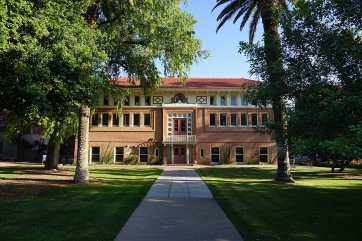Stanford University has announced an event that will talk about The Big Bang and how it was theorized. The lecture will be led by Professor John Calstrom of the University of Chicago.
The event is entitled "What Do We Know About The Big Bang?" It will be held at Hewlett 200 on Friday, Mar. 3, 7:30 p.m. and is sponsored by the Stanford Institute for Theoretical Physics.
In Stanford's official events website, Professor John Calstrom will be giving the plenary lecture on the origin, evolution and make-up of the universe. The talk will focus on what is already known about the Big Bang and how it was discovered.
It was noted that much of the advances regarding the beginning of the universe were found through measurement of the fossil light from the Big Bang, which is called the microwave background radiation. It provides scientists with a look at the universe 14 billion years ago.
According to Stanford News, three years ago, new evidence of "cosmic inflation" was discovered by Stanford researchers. This is the first direct proof that supports the Big Bang theory.
Andrei Linde and Chao-Lin Kuo, an assistant professor of physics, also found data that represented the first images of gravitational waves or ripples in space-time. These have previously been deemed as the "first tremors of the Big Bang." Their data also found a deep connection between quantum mechanics and general relativity.
Professor John Calstrom, who will give the lecture, is the Subramanyan Chandrasekhar Distinguished Service Professor at the University of Chicago. He is also the director of the South Pole Telescope.
The University of Chicago website stated that Calstrom is leading two cosmological research projects, including the South Pole Telescope in Antarctica. The second project is the Sunyaev-Zeldovich Array at the Owens Valley Radio Observatory in California.
His projects are focused on discovering new details about a mysterious phenomenon called dark energy. It was added that this plays a significant role in accelerating the universe's expansion.








